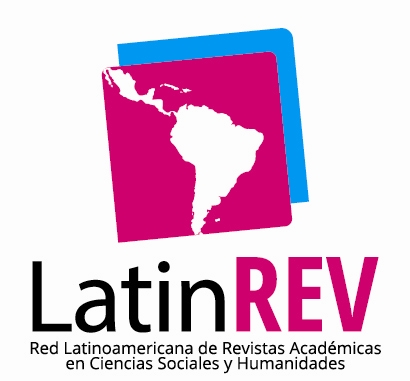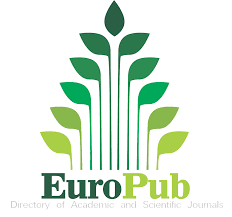Los entornos personales de aprendizaje (PLEs) en la formación sanitaria especializada.
DOI:
https://doi.org/10.62325/10.62325/yachana.v4.n2.2015.58Palabras clave:
Entornos Personales de Aprendizaje, Redes colaborativas, consumidores profesionales, co-creación, producción entre igualesResumen
El presente artículo se ha desarrollado atendiendo a las características especiales que presenta el sistema sanitario, particularmente a nivel docente. Sus necesidades de especialización y de formación continua favorecen que los profesionales desarrollen entornos personales de aprendizaje (PLEs). Esta singularidad hace muy adecuado al sector sanitario para poder presentar un estudio de caso de diseño de intervención. Para llevarlo a cabo se ha aprovechado la experiencia de Idcsalud, y en particular, de dos de sus entidades de referencia, la Fundación Jiménez Díaz, hospital universitario de la Universidad Autónoma de Madrid y el Hospital Universitario Sagrado Corazón, como centro docente de la Universidad de Barcelona. Las entrevistas realizadas han tenido un doble objetivo. Por un lado, determinar si los PLEs pueden implementarse en contextos educativos formales para crear entornos más abiertos aprovechando las oportunidades que ofrecen las tecnologías de información y comunicación (TIC) y en caso afirmativo, cómo realizarlo. Por otro lado, identificar las motivaciones para que los estudiantes actúen como consumidores profesionales (prosumers) de contenidos, en el sentido de establecer sus propios objetivos de aprendizaje y persistir en su consecución.
Descargas
Citas
Bawden, D. (2001). Information and digital literacies: a review of concepts. Journal of Documentation, 57(2), 218-259. doi: http://dx.doi.org/10.1108/EUM0000000007083
Beggan, J. (January, 1992). On the social nature of nonsocial perception: The mere possession effect. Journal of Personality and Social Psychology, 62(2). 229-237. Retrieved from http://goo.gl/0u1ypo
Benkler, Y. (2002). Coase’s Penguin, or Linux and the Nature of the Firms. Yale Law Journal, 112. Retrieved from http://goo.gl/kw8pR2
Benkler, Y. (2005). On the new open source economics [On-line video]. Retrieved from http://goo.gl/fWiq11
Benkler, Y. (2006). The Wealth of Networks. How Social Production Transforms Markets and Freedom. Retrieved from http://goo.gl/g1f65i
Bermejo, J. (2012). De la investigación a la innovación: importancia de la gestión de la propiedad intelectual en el Sistema Científico-Tecnológico Español para la promoción de entornos colaborativos[Tesis Doctoral]. Universidad Rey Juan Carlos. Handle: http://hdl.handle.net/10115/11413
Breaugh, J. (1985). The measurement of work autonomy. Human Relations, 38(6), 551-570, doi: 10.1177/001872678503800604
Cobo, C. y Moravec, J. (2012). El aprendizaje invisible. Hacia una nueva ecología de la educación. Recuperado de http://goo.gl/7FWEWp
Cope, B. y Kalantzis, M. (2009). Ubiquitous Learning. Illinois, USA: University of Illinois Press.
Cordery, J.L. y Wall, T.D. (1985). Work design and supervisory: A model. Human Relations, 38: 425-441.
Davis, F., Bagozzi, R., y Warshaw, P. (1989). User acceptance of computer-technology - a comparison of 2 theoretical-models, Management Science, 35(8), 982-1003.
Dedrick, J. y West, J. (2005). Why firms adopt Open Source Platforms: A grounded Theory of Innovation and Standards Adoption. Retrieved from http://goo.gl/IyOFvB
Deursen von, A.J.A.M (2010). Internet skills. Vital in an information society. University of Twente. Recuperado de http://goo.gl/1wJf5K
Diaz, J., Echevarría, J., Freire, J, Zaldívr, J., Ito, M., Lafuente, A.,..., Wesch, M. (2012). Educación Expandida. Recuperado de http://goo.gl/CgezfN
Downes, S. (2007). Emerging Technologies for Learning. Retrieved from http://dera.ioe.ac.uk/1502/
Franke, N. y Schreier, M. (2010) Why customers value mass-customized products: The importance of process effort and enjoyment. Journal of Product Innovation Management, 27(7), 1020-1031. doi: http://dx.doi.org/10.1111/j.1540-5885.2010.00768.x
Freire, P. (1967). Educação como prática da liberdade. Río de Janeiro: Paz e Terra.
Freire, P. (1970). Pedagogia do oprimido. New York: Herder y Herder.
Garvin, D. (1998). The processes of Organization and Management. Sloan Management Review, 3(2), 24-37.
Glaser, B. (1992). Basics of grounded theory analysis: Emerge vs. Forcing. California: Mill Valley Sociology Press.
Glasser, B. y Straus, A. (1967). The Discovery of Grounded Theory: strategies for qualitative research. New York: Aldine.
Goodman, P. (1960). Growing Up Absurd: Problems of Youth in Organized Society.New York: Vintage.
Goodman, P. (1962). Compulsory Mis-Education and the Community of Scholars. New York: Vintage.
Heider, F. (1958). Social Perception and phenomenal casuality. Psychological Review, 51, 358-374.
Hippel von, E. (1986). Lead users: A source of novel product concepts. Management Science, 32(7), 791-805.
Hippel von, E. (1998). Economics of product development by users: The impact of `sticky’ local information. Management Science, 44(5), 629-644.
Hippel von, E. et al. (2005). User-innovators and local information: The case of mountain biking. Research Policy, 34(6), 951-965.
Illich, Ivan (1973). Deschooling Society. Harmondsworth, England: Penguin.
Koh, J. y Kim, Y. (2004). Sense of virtual community: A conceptual framework and empirical validation. International Journal of Electronic Commerce, 8(2), 75-93
Longworth, N. y Davies, W. (1996). Lifelong learning. London: Kogan Page.
Martin, A. y Grudziecki, J. (2006). DigEuLit: Concepts and Tools for Digital Literacy Development. ITALICS: Innovations in Teaching y Learning Information y Computer Sciences, 5(4), 246-264.
Morgenson, F., y Humphrey, S. (2006). The Work Design Questionnaire (WDQ): Developing and validating a comprehensive measure for assessing jog design and the nature of the work. Journal of Applied Psychology, 91, 1321- 1339.
Orlikowski, W. (1991) Information Technology and the Structuring of Organizations Research Approaches and Assumptions. Information Systems Research, 2(1), 234-256.
Orlikowski, W. (1993) CASE Tools as Organizational Change: Investigating Incremental and Radical Changes in Systems Development. MIS Quarterly, 34(2), 41-54.
Pierce, J., Kostova, T., y Dirks, K. (2001). Toward a theory of psychological ownership in organizations. Academy of Management Review, 26: 298–310.
Pierce, J.L., Kostova, T. y Dirks, K. (2003). The state of psychological ownership: integrating and extending a century of research. Review of General Psychology, 7(1): 84–107.
Rudmin, F. (1991) To have Possesions: A Handbook on Ownership and Property.Special Issue of Journal of Social Behavior and Personality, 6(6).
Siebert, H. (1998). Konstruktivismus. Konsequenzen für Bildungsmanagement und. Seminargestaltung. Deutsches Institut für Erwachsenenbildung. Recuperado de http://goo.gl/uP35IE
Siemens, G. (2006). Connectivism: learning and knowledge today. Retrieved from http://goo.gl/x1LNGC
Siemens, G. (2007). Situating Connectivism. Retreived from http://ltc.umanitoba.ca/wiki/Situating_ConnectivismStrauss, A., y Corbin, J. (1990). Basics of Qualitative Research: Grounded Theory, procedures and techniques. Newbury Park, CA: Sage Publications.
Tapscott, D. (1997). The Digital Economy. New York: Mc Graw Hill.
Tapscott, D., y Williams, D. (2006). Wikinomics. La nueva economía de las multitudes inteligentes. Barcelona: Paidós Ibérica.
Thomke, S., y Hippel von, E. (2002). Customers as Innovators: A New Way to Create Value. Harvard Business Review, 80(2), 74-81.
Toffler, A. (1980). The Third Wave. London: Bantam Books.
Wenger, E. (2004). Communities of practice–a brief introduction. Retrieved from http://www.ewenger.com/theory/
Descargas
Publicado
Cómo citar
Número
Sección
Licencia


















